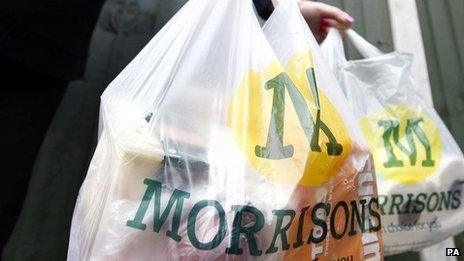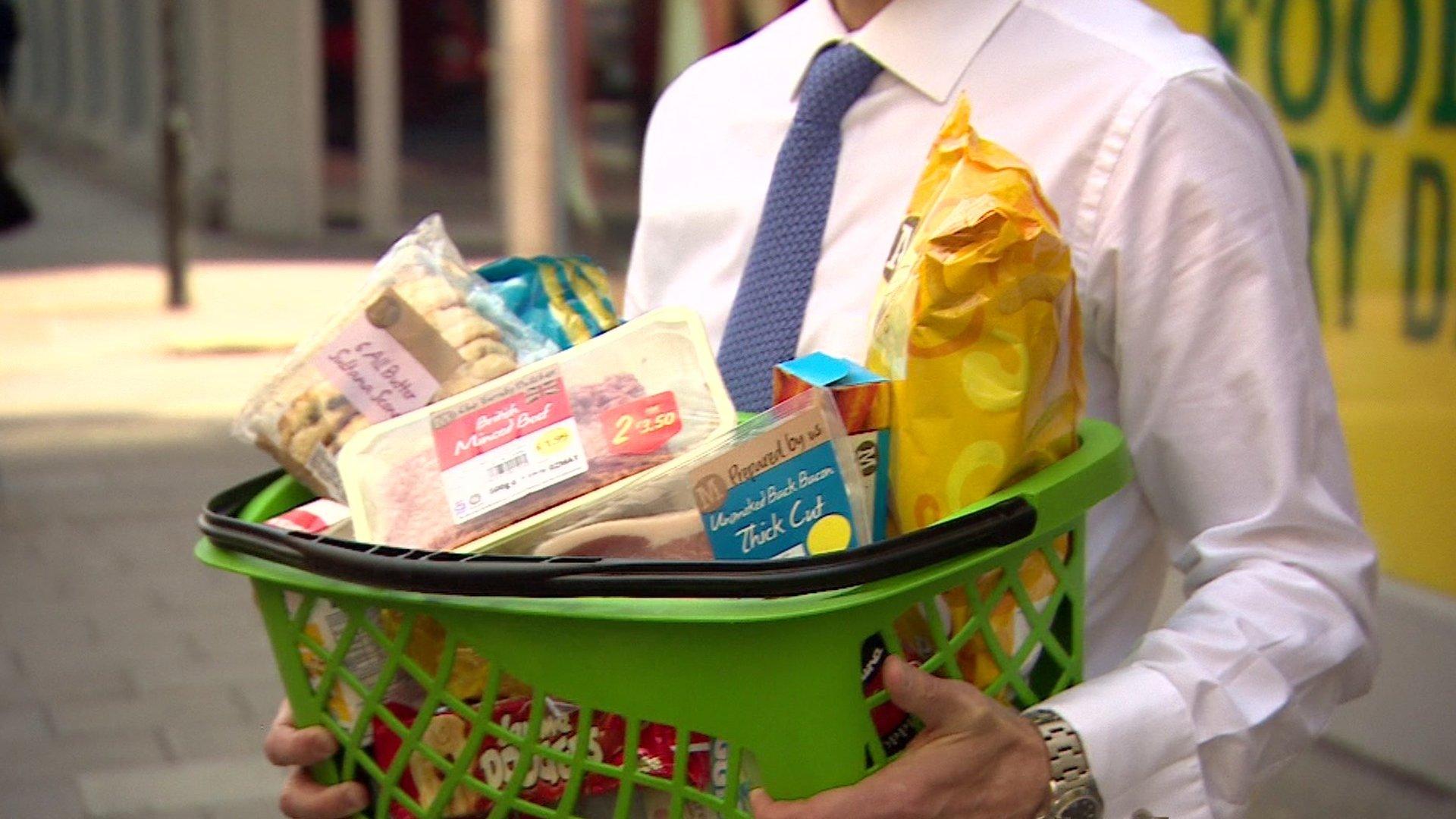Morrisons' profits hurt by supermarket price war
- Published

Morrisons is investing £1bn over three years
WM Morrison has reported a fall in half year profits of just over 30% as it feels the effects of cutting prices to win back shoppers.
It said pre-tax profits for the six months to 3 August fell to £239m from £344m a year earlier.
Morrisons, external is one of the "Big Four" supermarkets squeezed between the higher end of the market and discount supermarkets, including Aldi and Lidl.
Like-for-like sales excluding fuel fell 7.4% from a 1.6% fall a year earlier.
Sir Ian Gibson, non-executive chairman at Morrisons admitted trading conditions were tough adding the whole industry was experiencing "unprecedented change".
"Our first-half results reflect the reset of the business we announced in March. Morrisons is now well under way with building the foundations for a better future. The board is confident of the new strategy and Morrisons financial position remains strong," Sir Ian said.
Morrisons has embarked on a three-year £1bn investment programme.
The supermarket said it expected online shopping and convenience stores to drive overall market growth over the coming years.
Online shopping, which Morrisons only launched earlier this year, contributed 0.4% to overall sales in the six months to 3 August.
Despite the fall in profits Morrisons raised its interim dividend by 5% to 4.03p and confirmed its commitment to pay a full-year dividend of not less than 13.65p.
Morrison shares opened 4.3% higher to 183.90p on the London Stock Exchange.
Richard Hunter, head of equities at Hargreaves Lansdown Stockbrokers, said: "Morrisons may have confounded its doubters by raising its dividend in contrast to Tesco's recent cut, but there nonetheless remains a tortuous journey to anything resembling a full recovery."
Disastrous
Morrisons sales have suffered as it and the other Big Four supermarkets - Tesco, Sainsbury's and Asda - have lost market share to discounters like Aldi and Lidl, and high-end grocers including Waitrose and Marks & Spencer.
In April, Tesco reported a second fall in annual profits and has been forced to issue two profit warnings this year alone. In July the supermarket's chief executive, Philip Clarke, was forced to resign.
In June, the Morrisons chief executive Dalton Philips was blasted by the grocer's founder Sir Ken Morrison at its annual shareholder meeting for delivering what Sir Ken called a "disastrous" set of results.
Sir Ken also told Mr Philips that his three year plan for the chain was akin to the manure produced by his herd of cattle.
Mr Philips said he was encouraged by the progress Morrisons had made but admitted there was an "enormous amount of change" still to come.
"Although it is too early to see the benefits of the three-year plan in the sales line, Morrisons is getting back on the front foot, and implementing change and innovation at real pace throughout the business," Mr Philips added.
- Published30 April 2014
